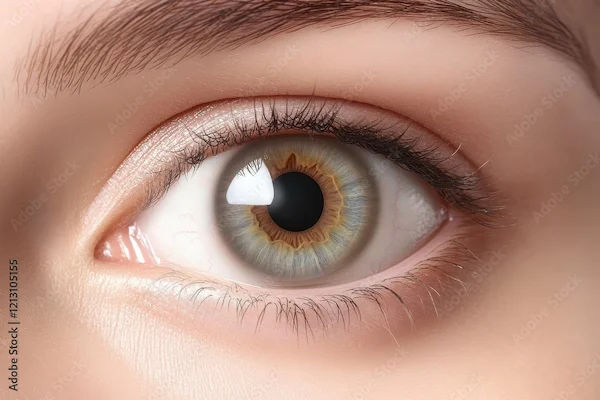Weight Lifting Restrictions After Cataract Surgery
Learn about weight lifting restrictions after cataract surgery, why they matter, how long to wait, and how to safely ease back into exercise during recovery.

Written by Dr.Sonia Bhatt
Last updated on 15th Jul, 2025

Introduction
If you've recently undergone cataract surgery, congratulations on taking a big step toward clearer vision! However, it's important to follow certain precautions during recovery, especially when it comes to lifting weights or heavy objects. In this article, we’ll explain why restrictions are necessary, how long they last, and how to safely return to your fitness routine without risking complications.
Why Are There Weight Lifting Restrictions After Cataract Surgery?
Cataract surgery involves removing the cloudy lens from your eye and replacing it with an artificial one. While the procedure is quick and minimally invasive, your eye needs time to heal properly. Lifting heavy weights or straining can increase pressure inside your eye, which may lead to complications such as:
Increased intraocular pressure (IOP): This can slow down healing or even cause damage.
Displacement of the intraocular lens (IOL): Heavy lifting can sometimes shift the new lens.
Bleeding or swelling: Straining can put extra stress on delicate eye tissues.
To ensure a smooth recovery, doctors recommend avoiding strenuous activities, including weight lifting, for a certain period.
Consult Top Specialists for Personalised Health Advice
How Long Should You Avoid Weight Lifting?
The exact duration depends on your surgeon’s advice and your individual healing process, but general guidelines include:
First 1-2 weeks: Avoid lifting anything heavier than 10-15 pounds (about 4-6 kg).
Weeks 3-4: Gradually reintroduce light weights (under 20 pounds) if approved by your doctor.
After 4-6 weeks: Most patients can resume normal weight lifting, but always check with your surgeon first.
If you’ve had complications or additional eye conditions, your doctor may extend these restrictions.
What Activities Should You Avoid?
Besides heavy weight lifting, you should also be cautious with:
Bending over can increase eye pressure
Rubbing your eyes increases risk of infection or lens displacement
High-impact exercises like running, jumping, or intense cardio in the first week
Swimming or hot tubs raise risk of infection
Safe Alternatives During Recovery
While you wait to return to weight lifting, consider these low-impact exercises:
Walking – Gentle and keeps you active without straining your eyes.
Light stretching or yoga – Avoid inversions or positions where your head is below your heart.
Resistance bands – Provide a workout without heavy weights.
Breathing exercises – Help reduce stress and maintain relaxation.
Tips for a Smooth Recovery
A few simple steps can help you protect your vision and heal well:
1. Follow your doctor’s instructions – Every patient heals differently, so stick to personalised advice.
2. Use prescribed eye drops – They prevent infection and reduce inflammation.
3. Wear protective eyewear – Especially if you’re in dusty or windy environments.
4. Stay hydrated and eat well – Nutrients like vitamin C and omega-3s support healing.
5. Listen to your body – If an activity causes discomfort, stop immediately.
When Can You Safely Resume Weight Lifting?
Once your doctor confirms that your eye has healed sufficiently, you can gradually return to weight training. Start with lighter weights and monitor how your eyes feel. If you notice any of these symptoms, stop and consult your doctor:
Blurred vision
Pain or discomfort in the eye
Redness or swelling
Sudden flashes or floaters
If you have concerns about your recovery or want personalised guidance on resuming exercise after cataract surgery, consult an eye specialist. You can easily book an appointment with an ophthalmologist on Apollo 24|7 for expert care.
Final Thoughts
Cataract surgery is a life-changing procedure, and following post-operative restrictions ensures the best outcome. While weight lifting may need to wait for a few weeks, staying patient and cautious will help protect your vision in the long run. Once cleared by your doctor, you can safely return to your fitness routine, stronger and with clearer sight!
Have questions? Reach out to an Apollo 24|7 eye specialist today for professional advice tailored to your needs. Stay healthy and take care of your eyes!
Consult Top Eye Specialists
Consult Top Specialists for Personalised Health Advice

Dr. Sujit Pahari
Ophthalmologist
22 Years • MBBS, DNB, DOMS Ophthalmologist/ Eye Surgeon. FIC (Ophthal).
Bilaspur
Apollo Hospitals Seepat Road, Bilaspur

Dr Rajesh Rastogi
Ophthalmologist
33 Years • MBBS, MS Ophthalmology
New Delhi
Rotary Diabetic Centre, New Delhi
Dr. S Venkateswaran
Ophthalmologist
35 Years • MBBS, PGD (OPTHALMOLOGY)
Tiruvannamalai
Shiva Eye And General Hospital, Tiruvannamalai
Dr. Padmini S
Ophthalmologist
4 Years • MBBS,MS
Bengaluru
Apollo Medical Center, Marathahalli, Bengaluru

Dr. Sneha T Khurana
Ophthalmologist
9 Years • MBBS, MS Ophthalmology
Gurugram
GS multispeciality clinic, Gurugram
Consult Top Eye Specialists

Dr. Sujit Pahari
Ophthalmologist
22 Years • MBBS, DNB, DOMS Ophthalmologist/ Eye Surgeon. FIC (Ophthal).
Bilaspur
Apollo Hospitals Seepat Road, Bilaspur

Dr Rajesh Rastogi
Ophthalmologist
33 Years • MBBS, MS Ophthalmology
New Delhi
Rotary Diabetic Centre, New Delhi
Dr. S Venkateswaran
Ophthalmologist
35 Years • MBBS, PGD (OPTHALMOLOGY)
Tiruvannamalai
Shiva Eye And General Hospital, Tiruvannamalai
Dr. Padmini S
Ophthalmologist
4 Years • MBBS,MS
Bengaluru
Apollo Medical Center, Marathahalli, Bengaluru

Dr. Sneha T Khurana
Ophthalmologist
9 Years • MBBS, MS Ophthalmology
Gurugram
GS multispeciality clinic, Gurugram


.webp)

